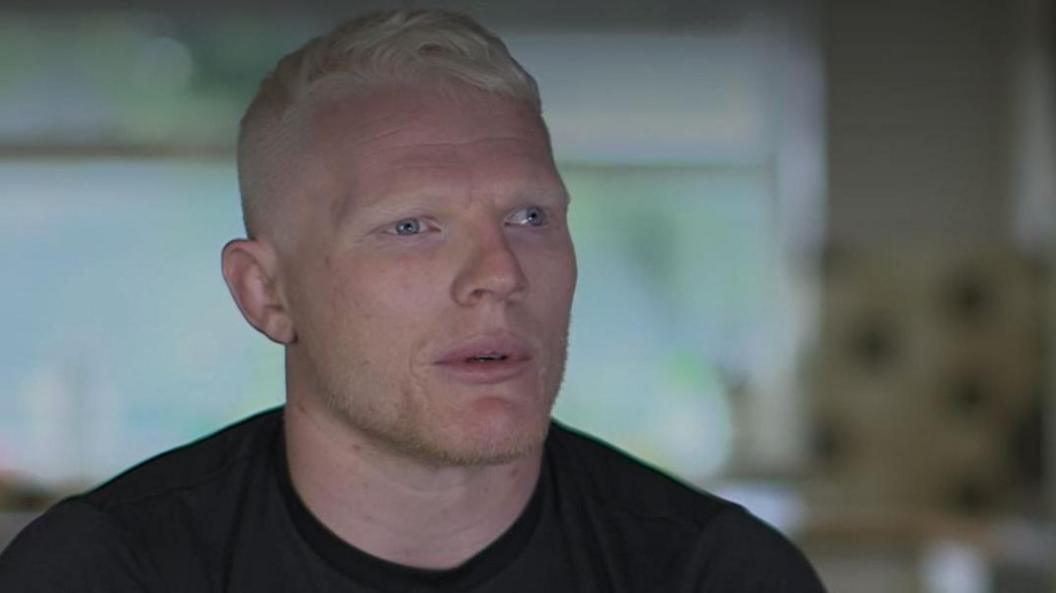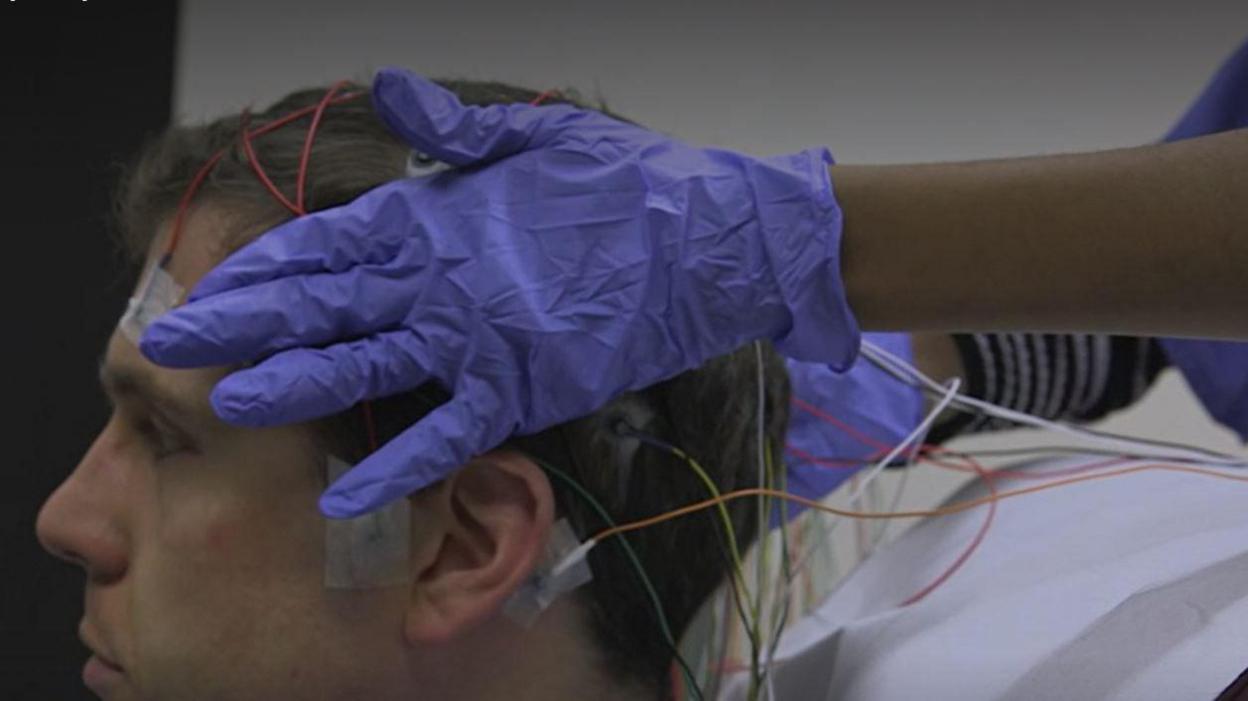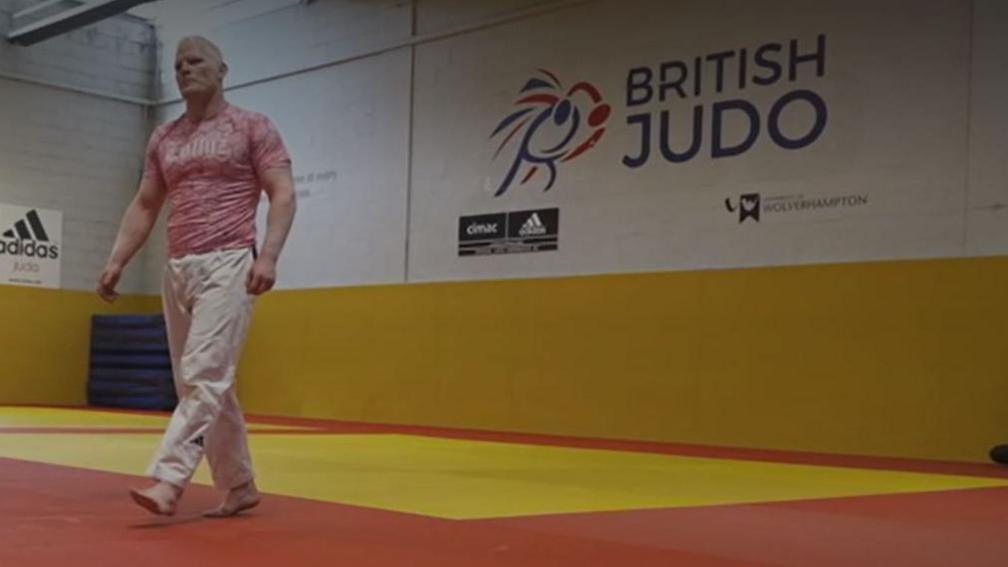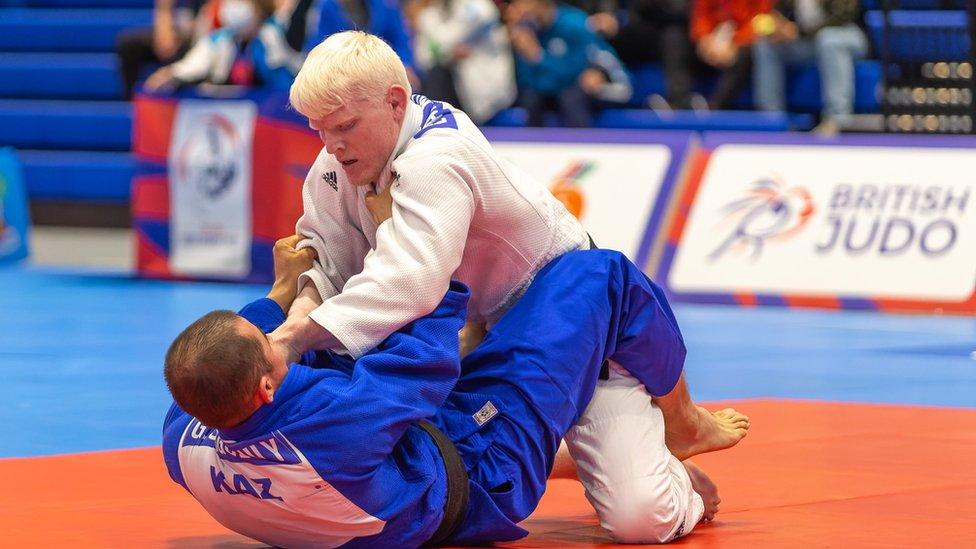'I was scared to sleep due to epilepsy seizures'

Evan Molloy from Devizes is a paralympic hopeful
- Published
A judo competitor whose goal is to go to the Paralympics has featured in a television charity appeal describing his experience of epilepsy and how a medication trial changed his life.
Evan Molloy, from Devizes, Wiltshire, is also visually impaired and has represented Team GB in other international events.
Epilepsy runs in his family and he was diagnosed at four years old.
He said: "I was scared to sleep because any time I closed my eyes, I would have a seizure."
After contacting the Epilepsy Society, he was able to find the right medication and has been seizure-free for nearly five years.

Evan Molloy explained that probes were put on his head to find out what was going on in his brain
Epilepsy affects more than half a million people in the UK, around one person in every hundred.
The BBC Lifeline Appeal film for the Epilepsy Society was shown on BBC One on 30 June and will be repeated on BBC Two on 5 July.
In it, Mr Molloy explained some of the frightening effects of the seizures.
"Post a seizure, I woke up, I was on the floor, I regained control of my body," he said.
"I went to look in the mirror to check if I had burns, I didn't see any of them. I went back to bed. In the morning, I'd wake up with my face stuck to my pillow with the blood I didn't notice.
"I'd catch it too late because of the visual haze."
When he was scared to sleep, he would become so exhausted, he would doze off but then "shoot up and panic, because I knew what was coming".
'Life did a 180'
Mr Molloy went to the charity, which offered video telemetry to be able to pinpoint what was happening in someone's brain.
He was referred to its medical centre in Chalfont St Peter, Buckinghamshire, in 2019.
"They stick these probes all over your head. You're constantly monitored in that time - it's quite a mentally tough thing to do," he said.
They then found the right type of medication.
"My life did a 180 through the research that they do and continue to do to help so many other people like myself," Mr Molloy said.
"Now I just want to get to the Paralympics and get on that podium.”
He has been training at the Judo Centre for Excellence and set his sights on a place in Team GB for the forthcoming Paralympics.

Mr Molloy said that after contacting the Epilepsy Society, his life "did a 180"
Other people with epilepsy and their families featured alongside Mr Molloy in the short film presented by broadcaster Edith Bowman.
Clare Pelham, chief executive of the Epilepsy Society, said: “His success story really highlights why we try so hard to find new and better ways to support people with epilepsy. Everyone deserves the chance to live their best life."
The charity has a centre for medical research, operates a NHS epilepsy assessment facility, provides residential care to around 100 people with severe forms of the condition and runs a helpline.
Follow BBC Wiltshire on Facebook, external, X, external and Instagram, external. Send your story ideas to us on email or via WhatsApp on 0800 313 4630.
- Published4 July 2023
